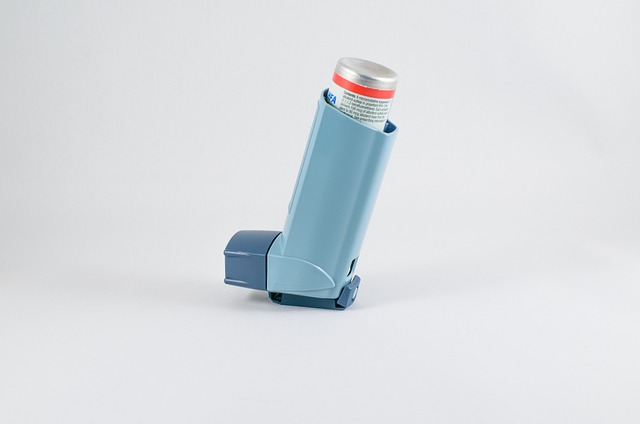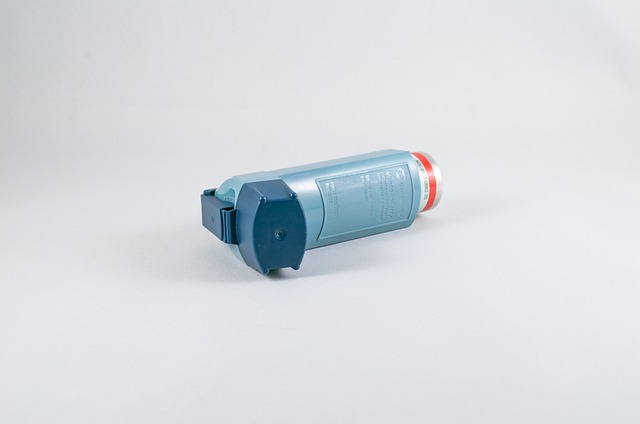
While asthma is now affecting you, and you are freaking out, stay calm. There is no cure for asthma, as it is a chronic disease. Your life does not have to stop after you have been diagnosed with asthma. Keep reading to gain insight as to what you can do to keep this serious disease under control.
Avoid anything that can trigger your asthma. Many asthma suffers find that dust or pollen can trigger an attack. For others, physical activity can irritate them. Figure out what sets off your asthma so you can avoid it.
If asthma is something you suffer from, do not smoke or spend time around smokers, much less any source of vapors and fumes. That means you have to avoid all tobacco, and seriously consider think about what jobs you take; for example, factories are probably not a healthy place for you because of all the vapors and smoke.
There are some common medications that you could be using that will cause asthma symptoms. Aspirin is an example of a widely used medicine that can cause asthma problems. You can also use beta blockers, which will help you manage blood pressure. If you have any of these conditions along with your asthma, make sure you tell your doctor.
Keep away from any and everything that you know triggers your asthma attacks. For some, allergens such as dust and pollen can trigger an attack. It could also be some type of strenuous exercise. Try and figure out what gets your asthma started so you know what to avoid.
If you are having an asthma attack (mild or moderate), you need to try to force air out of the lungs. Breathe out hard and fast. Try hard to push the air out from your lungs! Then take three small breaths in, followed by a deeper breath to fill your lungs comfortably. Next, exhale forcefully again. This technique develops a breathing rhythm, allowing you to notice the breaths that you take in. When air is forcefully exhaled, it allows a fresh intake of air to fill your lungs. This breathing technique may cause some coughing or sputum, but it can help regulate your breathing and reduce the attack.
If you are experiencing a moderately severe attack, try to first exhale completely. Exhale quickly and forcefully. Forcefully push the air out from your lungs. Then take three small breaths in, followed by a deeper breath to fill your lungs comfortably. Next, exhale forcefully again. Pay attention to what you are doing and follow a regular rhythm. It also helps to push air out from your lungs so new air can come back in. This breathing technique may cause some coughing or sputum, but it can help regulate your breathing and reduce the attack.
If you suffer from asthma and allergies that result in attacks, you can get injections of long-lasting medication for relief. An antibody medicine under the name Omalizumab can be used to reduce these symptoms caused by allergies and might be prescribed by your allergist.
Chemical Fumes
Be certain to properly use your inhaler. Find a spot that is out of the way, and follow the manufacturer’s instructions to the letter. The inhaler will only work if the medicine reaches your lungs. Make sure that you spray the required dosage directly into your mouth, inhaling the medication into your lungs. Continue holding your breath for approximately 10 seconds. This way, the medication will soak into the cells of your lungs.
Cigarette smoke will make your asthma worse. Smoking is especially dangerous for asthmatics. Avoid vapors and chemical fumes from cigarettes. These irritants can be a trigger for a severe asthma attack. Do everything you can to avoid cigarette smoke, air pollution, allergens and harsh chemical fumes to keep your asthma symptoms under control.
Make certain that all members of your family get their annual flu shot. If you have asthma, it’s important to prevent all respiratory infections, if at all possible. The preventative measures you can take against such sickness range from simple habits of hand washing to getting your annual flu shot.
If you have asthma and lack the health insurance coverage to deal with asthma treatment, talk to a social worker. Asthma patients need their medications, and a social worker might be able to hook you up with programs to help you such as clinics and programs through pharmaceutical companies.
Both Vitamin C and Vitamin E are important if you suffer from asthma. You can buy these vitamins to help you get better function from your lungs and control your asthma symptoms. Many foods have these vitamins in abundance, but you can also use a supplemental pill. These vitamins also help boost your immune system, which helps to prevent illnesses that trigger asthma.
Respiratory Infection
If you are dealing with asthma, you would benefit from buying a dehumidifier. Decreasing the humidity in the house decreases dust mites, which decreases asthma flare ups. Dehumidifiers reduce attacks in your home by making the air cleaner and drier.
Asthmatics should have a flu shot every year to prevent contracting a serious respiratory infection. Do everything you can to avoid a respiratory infection if you have asthma. Common method of avoiding illnesses can be very effective. Keep your vaccinations up to date and wash your hands frequently.
Using four or more cleaners in your home can contribute to asthma attacks. Choose organic products, and stick to as few products as possible.
Studies show that using a variety of cleaning products in the home can actually increase the odds of triggering an asthma attack. Organic products are preferable to more chemically loaded, commercially produced cleaning products.

People suffering from asthma should stick to unscented products. Simple everyday things such as air fresheners, incense and perfume can cause indoor air pollution levels to increase and trigger an attack. Put down some new carpeting and throw up a coat of paint to get rid of indoor odors. Strive to maintain an indoor environment that is free from these pollutants, keeping the air fresh.
If you have been diagnosed with asthma then you should avoid cigarettes and smokers like the plague. When tobacco smoke is inhaled, especially in closed-in areas, your lung function can be drastically decreased, which can increase your chances of suffering from an attack.
Know what causes your asthma attacks, as this will enable you to work around them or prepare to treat the asthma attacks that result. A lot of people who suffer from asthma have the same triggers, pet dander, smoke, or pollen. When possible, stay away from these triggers that cause symptoms or ultimately, full-blown attacks.
Try to keep your home as clean as possible, especially the bedroom of the asthma sufferer, to reduce the risk of an asthma attack. Food should be eaten only in the kitchen or dining room, and cigarettes are best relegated to outdoor smoking areas. If you clean with any harsh chemicals or bleach, make sure to ventilate thoroughly afterwards.
Make it a habit to always have some rescue medication available when you travel. Traveling can be somewhat stressful and put added strain your body, which might make you more likely to respond to asthma triggers by having an attack. It is also hard to predict what will come up or to control your environment when you travel, which increases the chances of experiencing more severe symptoms or an attack.
Annual Flu Shot
There are support groups available to you, both in person or on the Internet. Suffering from asthma can mean many days are spent at home with your condition stopping you from participating in a full and fulfilling lifestyle. Being a part of a support group can help provide you with honest information about products and helpful hints, as well as medical news.
If you have asthma or you live with an asthma sufferer, you should ensure you receive an annual flu shot. This annual flu shot will prevent infectious damage to your lungs.
Use your maintenance or preventative inhaler every day. However, you should know that the drug may cause mouth infections near your gums and teeth. Always brush and gargle as soon as you’ve finished using your inhaler to prevent mouth infections.
If you suffer from asthma, consider using a feather-free pillow to sleep. Feather can decrease lung function and trigger asthma symptoms. Your other bedding, such as sheets, blankets and comforters, should be hypoallergenic, too.
You need to know how to properly use your inhaler if you have been diagnosed with asthma. Simply spraying it and then inhaling in a shallow manner will negate the inhaler’s benefits. You must simultaneously inhale and spray the inhaler, then hold your breath for several seconds. Failing to do so will mean that the medicine will not be able to help open up your breathing.
Humidity is a problem in the home, because it creates conditions that are perfect for mildew and mold growth. Mold and mildew can have a hand in making you suffer a asthma attack! Thus, keep the air in your home as moisture-free as possible to avoid asthma-related problems. When you use the heater in the winter, be sure to have a dehumidifier control the humidity in your home. During the summer time, be sure to use the air conditioner to maintain a dry home.
Take the time to learn all there is to know about your affliction. Knowledge is power, and enlightened proactive steps yield immeasurable dividends in your treatment and management regimen. Keep up to date on the different treatments and always be sure to have the best possible care for yourself. The best thing you can do is educate yourself about asthma and its treatment.
Make sure you count how many times, within a week, you have to use your inhaler. If you use it more than two times, your asthma might not be well-controlled or you may have unusual occurrences causing those frequent attacks. How often an inhaler is used can help to monitor the environment.
Always wear a face mask, if you are going to do any painting, in order to protect your airways from the fumes. A proper breathing mask will help to protect asthma sufferers from paint fumes. Avoid substances and chemicals which can worsen your asthma.
Asthma sufferers need to know which types of animals and breeds won’t trigger their asthma attacks. Asthmatics can be affected by the dander or pollen that comes from the animals, even if they have no allergies to them. This can be a very risky situation to put yourself in and should be avoided.
Asthma support groups can also provide moral support to help you deal with difficult times and the frustration of asthma. They can offer you tips about handling different situations and help you manage your asthma. One of the keys to fighting asthma is having the support of the people in your life.
Be prepared to live with arthritis! Knowing about your personal asthma situation and how you can effectively manage it on a daily basis is going to help you avoid crises. This article is the first step to understanding how to battle this disease effectively!
Keep your home dusted and mopped. Additionally, you will want to wash your blankets, pillows and sheets often. By doing this, it prevents dust mites and dust from building up. Both dust and dust mites can trigger asthma attacks. When you have a build-up of dust in the air, your lungs will suffer and that can set off an attack.
